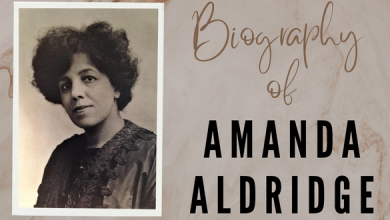How to Keep your Query Letter Under 3 Pages

Querying is the process of submitting a one-page letter to a literary agent or publishing house to gain representation for one’s work. Said, a query letter is a vehicle through which you present your book proposal to potential publishers.
Your query letter should be a concise summary of your manuscript that will help a literary agency or publisher decide whether or not to pursue your work. Please keep reading to find out what an agent is looking for and how to draft a query letter that will excite them to represent you.
There are so many things to keep in mind while you are trying to write a query letter under 3 pages. You will be going to know about all the things, just keep reading this content till the end.
Writing a Query Letter: A Step-by-Step Guide:-
The good news is that query letters follow a standard format established by the publishing business. Unfortunately, an author only has approximately 10 seconds to capture the reader’s attention and make them want to keep reading the letter. If you’re a writer, all you must do is use the standard format for a query letter, but the quality of your work must be exceptional. So, for that you must follow so many important things which is mentioned below in detailed.
The essentials of an effective query letter are as follows: –
-
Salutation:-
One of the most important things for a Query letter, which makes the first impression. A letter to a person should begin with a salutation, in which you address the recipient by name. Never send the same generic inquiry letter to many agents; instead, tailor each one to the specific needs of the agents you contact.
-
The Hook:-
Your query letter’s first two or three sentences can entice readers to keep reading or make them want to hit the delete button. If you want representation, these sentences are the most important ones you will write, so take your time perfecting them.
The agent reading your query letter should be so intrigued, inspired, or captivated by your hook that they can’t help but read the rest of your polished book. Reading multiple examples of query letters will help you perfect your opening paragraph.
-
Describe Your Story perfectly:-
Another important thing to focus on after the first paragraph’s delicious appetizer, you’ll have the chance to deliver the captivating highlights of your book in the following two sections (or no more than 200 words total!). Introduce the central conflict or plot arc and perhaps some background information about the main character if your book is fiction.
If your work is nonfiction, use this section to explain the issue it addresses and why it’s essential to the reader. This is the place to provide a brief overview of the book, including its purpose and main points if it is a biography or memoir.
-
Author Biography:-
In you have your author bio, then you have the opportunity to sell yourself to a literary agency by highlighting your accomplishments, publications, experience, and personal history. Keep it succinct, write it in the first person, and remember that you want to come out as a credible writer. This thong will surely impress the person.
-
Focus on closing:-
Last but not the least, at the time of closing your Query letter follow must use things. Like towards the end of your query letter, you should include a brief paragraph that directs the reader’s attention to the entire manuscript, chapter excerpts, or book proposal that may be found in the email’s body. Always read and adhere to the submission rules of the specific agent or publishing house you’re targeting.
If your book is a work of fiction, please share its final word count. Thank the agent for their time and effort, and then provide your details below the signature line.
Instructions for Composing a Query: –
Now that you know the basics of composing a query letter, it is helpful to be aware of some of the more advanced techniques. The following are some suggestions for crafting a query letter examples that will entice the reader to see your sample work or whole book, and this is the best opportunity for you to attract the person.
Let’s know about them: –
-
Personalize It:-
A generic cover letter or query is the quickest way to the rejection pile. So, be aware about it. Find the agent’s name and position so you may greet them by name, and then, in the closing paragraph, sprinkle in a few details that demonstrate you’ve done your homework on the company. You can do this by mentioning a previous publication similar to this one or saying a prestigious literary award they have won.
-
Concise:-
Submissions to literary agencies and publishing houses are at an all-time high. Maintain a maximum length of one written page, single spaced, or about 400 words (which will help the person to read your Query fast) if you want yours to be read. When sending out a query letter, brevity is critical.
-
Best selling point first:-
A recommendation from a trusted source is the best way to get noticed. It’s always a good idea to let the agency know right off the bat if you know them personally or if someone famous in the publishing industry gave you a referral to them.
-
Balance your description of characters and plot:-
Aim for a balance between character and narrative fundamentals in your book description to give the agent or publisher representative a complete picture of your story. You may write a powerful summary by giving each section the same amount of focus.
Final Words:-
Given the importance of the letter to the writer, you cannot afford to produce a shoddy letter. Use a sample or template to help you figure out what information to include in your letter if this is your first time writing one.




